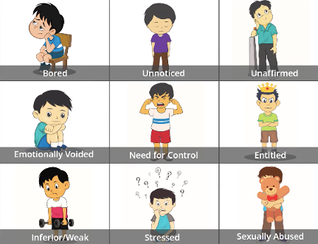Men's Mastermind Groups
Navigating Sober Living: finding hope, joy and purpose
- Sessions begin: Week of September 12th 2023
Click on the "Signup" tab to
register and reserve your spot!
Chose purpose, faith, hope and love
Steve Lynott - Facilitator - Steve is a professionally trained group facilitator and recovery coach. He has extensive experience helping men find a new healthy path. His approach is to both encourage and challenge each participant to develop a new design for life through their commitment to change, in faith, hope and love.Join Mens Mastermind Group
Pivotalinsights, LLC offers an opportunity for men to look at each element of their brokenness in a safe, non-judgmental, forum with other men. Learn from experts and those who are succeeding as they navigate life's turbulence and find hope, love and joy again.
We invite you to become a part of a dedicated fraternity of men who are resolutely seeking to:- develop a plan for living that includes recovery from addiction and obsessions while rediscovering healthy habits that bring fulfillment and joy
- address the root causes of the unhealthy behaviors
- find freedom from shame and fear
- repair their damaged marriages and relations
- understand how the 'younger you' (your inner child) impacts so much your adult behavior
- gain access to new friends and resources
- let go of shame and fear and find fulfillment and peace
Topic inventory
Recovery is more than healing and arresting destructive behaviors and personality traits, it is also about living a fulfilling life. We will chose from the following topics over the course of the twelve weeks, weaving in useful insights and expertise as you build your Navigating Life Plan.- The level of support you have from parents and other safe people
- Wounding that perpetuates shame, fear, beliefs and a need to control our own emotional safety
- Lack of emotional development: our inability to sit in our own or others emotional discomfort
- Access to substances
- Unhealthy behaviors modeled by adults in the home
- Development of inner child that influences adult behaviors (see chart on the right .. from Dr Capparucci's book 'Going Deeper')
- Committing to sobriety is a significant and life-changing decision. It involves making a conscious commitment to abstain from substance use and create a healthier, more fulfilling life. Here are some key aspects to commit to in sobriety:
- Abstinence from Substance Use: The core commitment of sobriety is to abstain from using alcohol or drugs. This requires a strong dedication to avoiding situations, people, and environments that might trigger substance use.
- Self-Care and Well-Being: Commit to taking care of your physical, mental, and emotional health. Prioritize regular exercise, proper nutrition, adequate sleep, and engaging in activities that bring you joy and relaxation.
- Support Network: Recognize the importance of a strong support network. Surround yourself with people who understand and support your sobriety journey. This could include friends, family, support groups, therapists, or sponsors.
- Mindfulness and Emotional Regulation: Practice mindfulness and emotional regulation techniques to manage stress, cravings, and negative emotions. Mindfulness can help you stay present and make healthier choices.
- Personal Growth and Healing: Commit to personal growth and healing. This might involve addressing underlying issues that contributed to substance use, seeking therapy, and working on improving self-esteem and self-image.
- Setting Boundaries: Learn to set healthy boundaries with people and situations that could undermine your sobriety. This might mean avoiding certain social gatherings or conversations that could trigger cravings.
- Honesty and Accountability: Be honest with yourself and others about your journey. Acknowledge your successes and challenges. Accountability can help you stay on track and receive the support you need.
- Lifestyle Changes: Make necessary lifestyle changes to avoid triggers and create a more supportive environment. This might include finding new hobbies, changing your daily routine, or reevaluating your social circle.
- Celebrate Milestones: Celebrate your achievements and milestones in your sobriety journey. Recognize the progress you've made and use it as motivation to continue.
- Relapse Prevention: Develop a plan for relapse prevention. Understand that setbacks can happen, but having a plan in place to address them will help you navigate challenges and continue on your path to sobriety.
- Abstinence from Substance Use: The core commitment of sobriety is to abstain from using alcohol or drugs. This requires a strong dedication to avoiding situations, people, and environments that might trigger substance use.
- In the 'Navigating Life Plans we will cover:
- What makes a good plan
- The importance of mindset in planning
- Transitions and change
- Creating new habits
Life Plan
A well-rounded life plan takes into consideration multiple aspects of your life to ensure holistic growth, fulfillment, and success. Here are four important aspects to include in a good life plan:- Career and Professional Goals: Set clear career goals that align with your passions, strengths, and long-term aspirations. Define the steps you need to take to achieve these goals, whether it involves further education, skill development, networking, or seeking new opportunities. A strong career plan helps you create a fulfilling and prosperous professional life.
- Personal Growth and Development: Prioritize personal growth by setting goals that enhance your skills, knowledge, and self-awareness. Consider activities like reading, attending workshops, learning new hobbies, and practicing mindfulness. A commitment to personal development ensures that you continue to evolve as an individual and adapt to changing circumstances.
- Health and Well-Being: Your well-being is fundamental to a good life plan. Outline goals related to your physical health, mental well-being, and self-care. This could involve exercising regularly, maintaining a balanced diet, getting adequate sleep, managing stress, and seeking support from healthcare professionals when needed.
- Relationships and Social Connections: Nurture your relationships and social connections by setting goals that foster meaningful interactions. Allocate time for family, friends, and building new relationships. Healthy connections contribute to your emotional well-being and provide a support system during both joyful and challenging times.
Mindset
Cultivating a healthy mindset is crucial for overall well-being and success. Here are three important insights about a healthy mindset:- Positivity and Optimism: A healthy mindset involves maintaining a positive and optimistic outlook. This doesn't mean ignoring challenges or pretending everything is perfect, but rather choosing to focus on solutions, opportunities, and the bright side of situations. Optimism can increase resilience and help you navigate difficulties with greater strength.
- Self-Awareness and Growth: Self-awareness is a cornerstone of a healthy mindset. Being in tune with your thoughts, emotions, and behaviors allows you to identify negative patterns, self-limiting beliefs, and areas for improvement. Embracing a growth mindset means seeing challenges as learning opportunities and believing in your ability to develop new skills and traits over time.
- Resilience and Adaptability: A healthy mindset emphasizes resilience and adaptability. Life is full of uncertainties and setbacks, but having a mindset that can bounce back from adversity and adapt to changes is crucial. Resilient individuals view failures as temporary setbacks and use them as stepping stones toward future success. They also embrace change as a natural part of life and are open to adjusting their perspectives and strategies.
Transitions
It seems you're referring to the book "Transitions: Making Sense of Life's Changes" by William Bridges. This book explores the psychological and emotional process that individuals go through during times of significant change or transition. The book outlines three main phases of transition:- Ending, Losing, and Letting Go: This phase involves acknowledging and letting go of what was. It's about recognizing that something in your life is ending or changing, which can bring feelings of loss, uncertainty, and even grief. It's important to process these emotions and come to terms with the fact that the old ways are no longer sustainable or relevant.
- The Neutral Zone or The In-Between Time: This is the phase of ambiguity and exploration. It's the period between the old way of life and the new one. During this phase, you might feel disoriented, but it's also a time of opportunity for reflection and experimentation. It's a period of limbo where you can start envisioning what your new life might look like.
- The New Beginning: In this phase, you begin to embrace the new reality and incorporate the changes into your life. It's a time of acceptance, renewed energy, and focus on building a new way forward. You have a clearer sense of what you want and are ready to take action to create the new life that aligns with the changes you've undergone.
Forming new habits
It seems like you're asking about forming new habits based on the concepts outlined in Charles Duhigg's book "The Power of Habit." Here's a simplified breakdown of the habit formation process as described in the book:- Cue (Trigger): Habits start with a cue, which is a trigger that prompts your brain to initiate a certain behavior. Cues can be specific times of day, emotions, locations, people, or other environmental factors.
- Routine (Behavior): The routine is the behavior itself that you engage in as a response to the cue. It's the action that you've associated with the cue over time.
- Reward: The reward is the positive outcome or feeling that follows the behavior. Rewards create a feedback loop in your brain, reinforcing the connection between the cue and the routine. This loop is what solidifies the habit.
- Identify the Cue: Start by identifying the cue that triggers the habit you want to develop. For example, if you want to start exercising regularly, the cue might be a specific time of day or an event that signals it's time to work out.
- Choose the Routine: Decide on the specific routine or behavior you want to associate with the cue. In the exercise example, the routine could be doing a 30-minute workout.
- Define the Reward: Determine the reward that you'll give yourself after completing the routine. This could be a feeling of accomplishment, a healthy snack, or anything that provides a positive outcome.
- Repeat and Adjust: Repeat the cue-routine-reward loop consistently. Over time, the habit will become more automatic as your brain associates the cue with the routine and reward. If the habit isn't sticking, consider adjusting the routine or reward to make it more effective.
- Stay Consistent: Consistency is key to habit formation. Try to engage in the routine whenever the cue arises, and ensure you consistently experience the reward. The more you repeat this cycle, the stronger the habit becomes.
- Be Patient and Persistent: Forming new habits takes time and effort. Be patient with yourself and understand that there might be setbacks along the way. Persistence is key to solidifying the habit.
- Children can experience various wounds during their developmental years that can impact their emotional, psychological, and social well-being. Here are ten ways children can be wounded:
- Emotional Neglect: Children who experience emotional neglect may not receive adequate emotional support, validation, or affection from caregivers, leading to feelings of emotional emptiness or abandonment.
- Physical Abuse: Physical abuse involves intentionally causing harm to a child through actions such as hitting, beating, or other forms of violence, leading to physical and emotional wounds.
- Verbal Abuse: Verbal abuse includes using hurtful words, ridicule, or insults towards a child, which can lead to long-lasting emotional scars and damage to self-esteem.
- Traumatic Events: Children exposed to traumatic events, such as accidents, natural disasters, or violence, can experience emotional trauma that affects their development and coping abilities.
- Rejection: Experiencing rejection from caregivers, peers, or family members can lead to feelings of worthlessness, loneliness, and difficulty forming healthy relationships.
- Parental Addiction or Mental Illness: Children living with parents who struggle with addiction or mental illness may experience neglect, instability, and emotional distress.
- Bullying and Peer Rejection: Experiencing bullying or rejection from peers can lead to feelings of isolation, low self-esteem, and social difficulties.
- Absent or Unavailable Caregivers: Children who lack consistent and nurturing caregivers may struggle with feelings of abandonment and attachment issues.
- Divorce or Family Instability: Going through parental divorce or experiencing frequent family instability can disrupt a child's sense of security and well-being.
- High Expectations and Pressure: Experiencing excessive pressure to excel academically, athletically, or in other areas can lead to stress, anxiety, and a fear of failure.
- Emotional Neglect: Children who experience emotional neglect may not receive adequate emotional support, validation, or affection from caregivers, leading to feelings of emotional emptiness or abandonment.
- Understanding the concept of the inner child is crucial for personal growth, healing, and self-awareness. Here are ten important topics to grasp about the inner child:
- Definition of the Inner Child: The inner child refers to the part of an individual's psyche that retains childhood experiences, emotions, and memories, both positive and negative.
- Developmental Significance: The experiences and emotions of our early years significantly shape our beliefs, behaviors, and patterns in adulthood, influencing our relationships and overall well-being.
- Emotional Needs: The inner child represents unmet emotional needs from childhood, such as love, validation, and safety, which can continue to impact us as adults.
- Healing and Reparenting: Understanding and nurturing the inner child through reparenting involves addressing unmet needs and providing the emotional support and care that was lacking in childhood.
- Triggers and Reactions: Many emotional triggers and reactive patterns in adulthood stem from unresolved inner child wounds triggered by current events that remind us of past experiences.
- Core Beliefs: The inner child holds core beliefs developed in childhood, which can influence self-perception, self-worth, and how we view the world.
- Self-Sabotage and Coping Mechanisms: Unhealed inner child wounds can lead to self-sabotage, maladaptive coping mechanisms, and patterns of behavior that hinder personal growth.
- Vulnerability and Emotional Expression: Connecting with the inner child allows for the healthy expression of emotions and encourages vulnerability, leading to greater emotional authenticity.
- Inner Child Work: Inner child work involves therapeutic techniques and practices aimed at healing past wounds, integrating the inner child, and promoting self-compassion.
- Cultivating Self-Compassion: Understanding and embracing the inner child with self-compassion is vital for fostering emotional resilience and developing healthier relationships with oneself and others.
- Definition of the Inner Child: The inner child refers to the part of an individual's psyche that retains childhood experiences, emotions, and memories, both positive and negative.
- Emotional maturity refers to the ability to understand, manage, and express emotions in a healthy and constructive way. It involves self-awareness, empathy, and effective coping mechanisms. Here are some primary characteristics of emotional maturity:
- Self-Awareness: Emotionally mature individuals have a deep understanding of their emotions, motivations, strengths, and weaknesses. They can accurately identify their feelings and why they are experiencing them.
- Self-Regulation: Emotionally mature people can manage their emotions and reactions, even in challenging situations. They don't let their emotions control their behavior and can respond thoughtfully rather than impulsively.
- Empathy: They can understand and share the feelings of others. They're sensitive to the emotions of those around them and can provide support and comfort when needed.
- Resilience: Emotionally mature individuals can bounce back from setbacks, disappointments, and failures. They don't let negative emotions overwhelm them, and they can find ways to learn and grow from difficult experiences.
- Responsibility: They take responsibility for their actions, decisions, and emotions. They don't blame others for their feelings, and they can acknowledge when they've made a mistake.
- Healthy Boundaries: They can set and maintain healthy emotional boundaries in relationships. They know how to prioritize their own well-being without disregarding the feelings of others.
- Effective Communication: Emotionally mature people can express their feelings and needs clearly and respectfully. They're good listeners and can engage in open, honest conversations.
- Adaptability: They can adapt to change and navigate uncertain situations without becoming overwhelmed by stress or anxiety.
- Delayed Gratification: They can defer immediate gratification for longer-term goals. They can manage impulses and make decisions based on what's best in the long run.
- Positive Coping: Instead of resorting to destructive behaviors when facing stress or difficult emotions, emotionally mature individuals engage in positive coping mechanisms, such as seeking support, engaging in hobbies, or practicing mindfulness.
- Understanding Complexity: They can understand that emotions and situations are often complex and multifaceted. They don't rely on simplistic black-and-white thinking.
- Humble Confidence: Emotionally mature individuals have a balanced self-confidence that doesn't come across as arrogant. They're secure in themselves while still being open to learning and growth.
- Self-Awareness: Emotionally mature individuals have a deep understanding of their emotions, motivations, strengths, and weaknesses. They can accurately identify their feelings and why they are experiencing them.
- Supporting your spouse after betrayal requires patience, empathy, and a commitment to rebuilding trust and healing together. Here are some steps you can take to provide support:
- Open Communication: Encourage open and honest communication. Let your spouse know that you are there to listen without judgment and that their feelings and thoughts are valid.
- Validate Their Feelings: Understand that your spouse may be experiencing a range of emotions, including anger, sadness, confusion, and hurt. Validate their feelings and let them know it's okay to feel the way they do.
- Show Remorse: If you are the one who betrayed your spouse, express genuine remorse and take responsibility for your actions. A sincere apology can be an important step in the healing process.
- Be Patient: Healing takes time. Be patient with your spouse's healing journey and understand that there may be ups and downs along the way.
- Provide Reassurance: Reassure your spouse of your commitment to rebuilding trust and the relationship. Consistently show through your actions that you are working to make amends.
- Seek Professional Help: Consider couples counseling or therapy. A trained therapist can provide guidance, facilitate communication, and offer tools to navigate the difficult process of healing after betrayal.
- Respect Their Boundaries: Understand that your spouse might need space at times. Respect their boundaries and give them the room they need to process their emotions.
- Practice Transparency: Be open and transparent about your actions, whereabouts, and intentions. Rebuilding trust often requires a heightened level of transparency.
- Offer Reassurance: Regularly remind your spouse of your love, commitment, and efforts to make things right. Small gestures can go a long way in showing your dedication.
- Self-Care: Both you and your spouse should prioritize self-care. Engage in activities that promote emotional well-being and help you manage stress during this challenging time.
- Educate Yourself: Learn about the effects of betrayal and its impact on emotional well-being. Understanding the dynamics can help you navigate the process more effectively.
- Focus on Growth: Use the experience as an opportunity for personal growth and improvement. Show your spouse through your actions that you are committed to becoming a better person and partner.
- Open Communication: Encourage open and honest communication. Let your spouse know that you are there to listen without judgment and that their feelings and thoughts are valid.
- Adding balance, purpose, and joy to your life is essential for overall well-being and happiness. Here are ten ways to achieve that:
- Set Clear Goals: Define specific, achievable, and meaningful goals for yourself. Having a clear direction in life gives you purpose and motivation.
- Prioritize Self-Care: Make time for self-care activities that promote physical, mental, and emotional well-being. Exercise regularly, get enough sleep, eat nourishing foods, and practice relaxation techniques.
- Practice Mindfulness: Incorporate mindfulness practices into your daily routine, such as meditation or deep breathing exercises. Being present in the moment helps reduce stress and increases appreciation for the little joys in life.
- Maintain Healthy Relationships: Surround yourself with supportive and positive people who lift you up. Cultivate meaningful connections and spend quality time with loved ones.
- Simplify Your Life: Declutter your physical space and simplify your commitments. Focus on what truly matters and let go of unnecessary stressors.
- Engage in Hobbies: Pursue hobbies or activities that bring you joy and fulfillment. Whether it's painting, playing a musical instrument, gardening, or hiking, doing things you love enriches your life.
- Give Back to Others: Volunteer or engage in acts of kindness and service. Helping others not only brings joy to their lives but also gives you a sense of purpose and fulfillment.
- Practice Gratitude: Regularly express gratitude for the positive aspects of your life. This cultivates a positive outlook and helps you focus on the good things, even during challenging times.
- Set Boundaries: Learn to say no when necessary and set healthy boundaries with others. Prioritize your well-being and avoid overcommitting yourself.
- Embrace Learning and Growth: Continuously seek opportunities for personal and professional growth. Learning new skills or expanding your knowledge can lead to a sense of accomplishment and purpose.
- Set Clear Goals: Define specific, achievable, and meaningful goals for yourself. Having a clear direction in life gives you purpose and motivation.
- Blind spots - From "Why Men Struggle to Love, Capparucci, 2023
Based on his work with hundreds of men and their spouses, this is a list of blindspots Dr Capparucci has identified.- Processing emotional pain - theirs and others
- Curiosity - asking questions
- Connect Emotionally - being present
- Inwardly focused - selfish and self centered
- Limited interests - hobbies, sports, etc...
- Emotional intelligence - dealing with conflict, boundaries, feelings
- Hide and Lie - keeping secrets, telling partial truths
- Mindfulness - lack of ability to being aware, able to pause
- Impulsive - reacting vs responding
- Compulsive - not being able to maintain sobriety
- Fearful - living out of shame and fear
- Mood disorders - depression, anxiety, etc..
- Contentment - lack of fulfillment in life
- Hypersensitive - gets dis-regulated at minor criticism
- Connecting with God - needing to take control vs seeking His will
- Processing emotional pain - theirs and others
- Understanding the wounds we inflicted i.e. our behaviors of betrayal, lying, secrets, manipulating, gaslighting, denying, minimizing, defending, explaining, rationalizing unhealthy and abusive behaviors in all forms: pornography, problematic sexual behaviors, abusing alcohol, sarcasm, criticizing, belittling to name a few.
- Effective Communication: Practice active listening and open communication to understand each other's feelings, needs, and perspectives.
- Quality Time: Make time for regular date nights, shared activities, and meaningful conversations to strengthen your bond.
- Emotional Support: Be supportive and empathetic toward your wife's emotions and experiences, offering a safe space for her to express herself.
- Show Appreciation: Express gratitude and appreciation for your wife's efforts and contributions in the relationship and daily life.
- Physical Affection: Show affection through hugs, kisses, and touch, as physical intimacy fosters emotional connection.
- Learn Her Love Language: Discover your wife's love language and express love in ways that resonate with her the most.
- Shared Goals: Discuss and work towards shared goals and aspirations to build a sense of partnership and unity.
- Understand Her Needs: Continually seek to understand your wife's needs, and be proactive in meeting them.
- Resolve Conflicts Constructively: Handle conflicts with respect and empathy, seeking resolution and understanding rather than blame.
- Prioritize Emotional Intimacy: Focus on emotional intimacy, vulnerability, and emotional connection as crucial aspects of your relationship.
- Understanding the wounds we inflicted i.e. our behaviors of betrayal, lying, secrets, manipulating, gaslighting, denying, minimizing, defending, explaining, rationalizing unhealthy and abusive behaviors in all forms: pornography, problematic sexual behaviors, abusing alcohol, sarcasm, criticizing, belittling to name a few.
- Men's group registrationWhat you get as part of Pivotalinsights Men's Group:
- Group size 6-8 max, via zoom
- Access to insights from leading experts
- Stories from those who are succeeding
- Proven tools for navigating life and recovery
- A fellowship of other committed to grow
- A safe place to share, learn, stretch and grow
Payments- The fee is $160 per month
- paid at the beginning the month
(a PayPal invoice will be sent) - we will pause for 1 week every three months to assess progress and your desire to continue
- What is the workshop format
An interactive session (via zoom .. a private invite will be created and sent out) with a lead facilitator who has extensive experience in these formats. We will start on time and end on time. People who miss more than two consecutive sessions will be asked to reconsider their commitment.
Summary
Participants will work on the areas of life that need the most improvement and be able to gain insights from this fellowship and the experts on how to make the necessary changes in any of the following areas:- Purpose/vision/goals
- Developing their support team and allies
- Childhood wounds
- Emotional imprints (beliefs, expectations)
- Learning / nurturing your kid
- Spiritual and emotional growth
- Repairing torn relationships
- Establishing healthy lifestyle
(boundaries, activities, hobbies, people) - Uncovering and addressing 'blind spots'
- Developing a consistent cadence
(adopting healthy daily, weekly habits) - Scheduling new fun, joy-filled events
Meetings will be 75 minutes and include:- Check in - ‘what is your readiness metric’ tbd
- What were the 2 most important things you took from the weekly material / talk
- Updates to your plans / goals / actions
- Takeaways and feedback
- Adjourn
Continuous improvement
There is no requirement to sign up for a specific amount of time. Each individual will develop and integrate their plans based on their own unique circumstances.
An approach to consider is as follows:
- 1st Twelve Weeks - develop plan and apply new lessons and receive feedback
- 2nd Twelve Weeks - adapt the plan to your every day life, develop new habits and learn and adjust
- 3rd Twelve Weeks - integrate the core elements in the plan and refine
Outcomes for this journey
This is will be a rewarding journey with the right mindset and focus. Some of the outcomes we hope you achieve include:- Getting clear about your intention for my healthy life
- Deeper understanding of how I got here
- Growing spiritually and to 'let go and let God'
- Who are the people I need to include (my allies)/ and those I need to keep at a distance
- Who is 'my younger me' and what does he need
- How do I help support my spouse's healing and repair the damage I have done
- What does purpose, balance and love mean for me
Group ground rules- A complete commitment to maintaining confidentiality and anonymity
- Supporting a safe, open and nonjudgemental environment
- Being an ally to others
- Establish a mindset of healing, curiosity and compassion
- Bring your full self - no hiding, no secrets
- Show up on time
- Respond respectfully and with empathy
- Be grateful and affirming to yourself and others
- Expert contributors
These experts are committing their valuable time. They have extensive experience in various aspects of inherent in the principles of a 'Navigating Life Plan'. You will find great insights and inspiration in their stories, and advice.Dr Eddie Capparucci - Inner child & shame - Eddie specializes in treating Problematic Sexual Behaviors including pornography. He works with men who struggle by challenging them to understand "why" they feel, think and behave the way they do. Together, they embark on a journey of transformation that goes far beyond simply removing the addictive behavior and leads to the transformation of the "NEW" guy. Dr. Capparucci is the creator of the unique Inner Child Recovery Process for the Treatment of Problematic Sexual Behaviors and author of "Going Deeper", "Removing the Shame Label", and "Why Men Struggle to Love".
Les Smolin – planning and problem solving - Success in Les's world is measured by the impact you have on the people you work with and in turn their impact on the lives of those they touch. Les is a seasoned entrepreneur, executive, advisor, consultant, and leadership coach with over 40 year’s experience working with commercial, industrial, government and not for profit clients to maximize executive performance and company results.
Les earned both an undergraduate degree and a Masters in Business Administration from the University of Maryland. Education and the nature and path of mastery is something Les thrives on and continually invests in whether it's in the classroom or a less structured environment.
Dr Ken – physical wellness - Dr. Kenneth J. Olson, DC is a chiropractic physician and the Clinic Director of Anodyne Pain & Wellness Solutions of Aurora, formerly Pure Health Physical Medicine. He started his own practice, Olson Chiropractic, Inc., in 2000 focusing on chiropractic care and rehabilitation. In 2012 his clinic grew into Pure Health Physical Medicine, with the addition of medical services.
Jay Duff - serving others – Director, Analytics Engineering, Chick Fil A headquarters - Leading multiple teams focused on our corporate data lake, data ETL pipelines, voice/NLP, computer vision and forecasting. Heavy emphasis on migrating concepts to reliable services using automation and deployment processes in a public cloud environment.
Established Chick-fil-A's Technology Innovation Center at Tech Square. Mentor and coach student innovators by helping them learn about new technologies and build solutions to revolutionize restaurant operations, food safety and customer experience. We’re using big data and analytics, predictive modeling, IoT and a variety of other new technologies to help increase students’ knowledge and chart the future path of Chick-fil-A.
Ed Anderson- finding purpose - a global leader with experience in information technology, business operations, digital transformation and information security, as the organization’s chief administrative officer Leads Habitat For Humanities' finance, information technology, legal and facilities divisions, and supports the internal audit team.
Anderson previously served as director and chief information officer of the International Monetary Fund, where he was responsible for the modernization and digital transformation of human resources, economic data, knowledge management, capacity development and collaboration functions. Anderson also served as the global chief information officer for World Vision International, leading the creation of a unified global information solution and IT organization. His previous leadership experience also includes roles with Anerian, LLC; the United States Peace Corps; Americhoice Health Services; Sodexho; Iridium; Verizon and Accenture. Anderson earned a bachelor’s degree in management information systems from American University.
Troy Snyder, President C-SASI, Adjunct Professor - the trauma model - I work primarily in the area of sex addiction helping the client and his family. Depending on my availability, I also work with anger issues or provide limited adolescent counseling. If my schedule is full, you may ask that we add your name to my waitlist. I can also provide referrals to other therapists who have extensive training and experience and may be available to provide the help you need.
My faith in God is the main reason for my success in helping hurting people. I hold firmly to the Word of God being the truth to teach us wisdom and help us learn to live faithfully. I look forward to being used by God to help you or someone you know.









